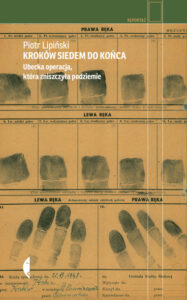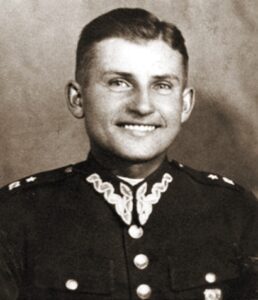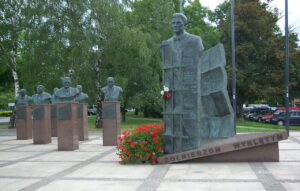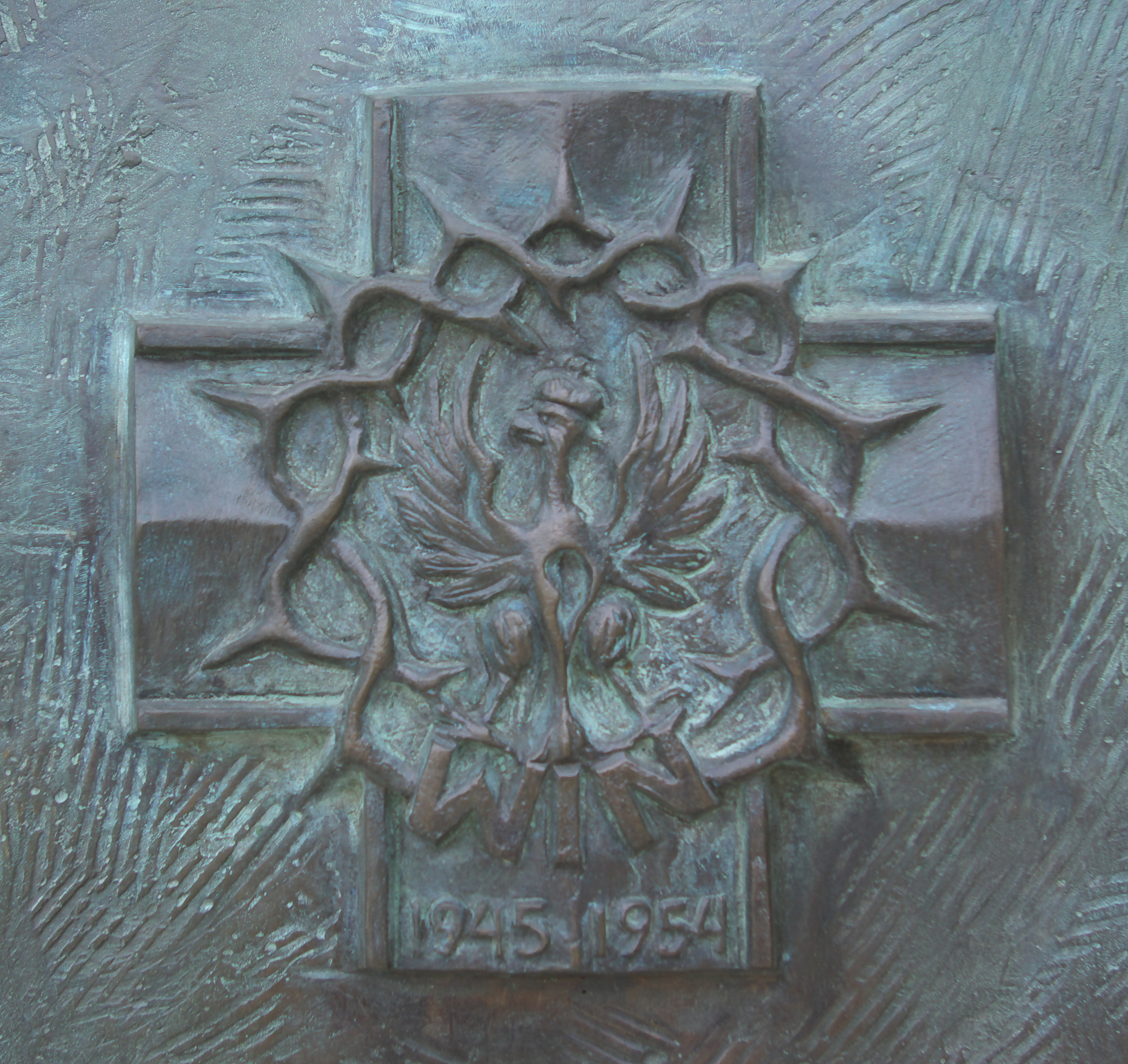Seventy years ago, Security Office officials managed to trick American intelligence in a somewhat similar way as the Soviets who launched the legendary Operation Trest. They established the fictitious 5th Command of the Freedom and Independence Association which destroyed the activities of the anti-communist armed underground in post-war Poland.
by Tomasz Siewierski
“Operation Cezary” is the subject of the latest book by Piotr Lipiński, entitled Seven steps till the end. The secret police operation that destroyed the Underground. Piotr Lipiński (born 1967) is a recognized reporter who has studied the history of the People’s Republic of Poland for a quarter of a century, mainly the Stalinist period. The strength of his most important books, Humer i inni (Humer and others) (1997), dealing with high-ranking officers of the secret police, a biography of Bolesław Bierut, Bolesław Niejasny (Bolesław the Obscure) (2001) or collections of reports, Towarzysze Niejasnego (Comrades of the Obscure) (2003) and Ofiary Niejasnego (Victims of the Obscure) (2004) were due to the testimonies of witnesses.

Title: Kroków siedem do końca. Ubecka operacja, która zniszczyła podziemie [Seven steps till the end. The secret police operation that destroyed the Underground],
Publisher: Czarne, 2020
The organization Freedom and Independence, established in September 1945, was the largest post-war underground structure subordinated to the Polish authorities in exile in London. It was headed by Colonel Jan Rzepecki. The organization ceased to exist in the late autumn of 1947, together with the arrest of the last president of the Freedom and Independence Association’s Command, Łukasz Ciepliński and his associates, who were then sentenced to death (the sentences were carried out). By that time, secret police officers had managed to infiltrate the Freedom and Independence milieu and introduced a network of agents into it. They also managed to recruit existing soldiers of the Home Army and the Freedom and Independence Association, which is of key importance in this story.
These recruits enabled them to create a fictitious 5th Command of the Freedom and Independence Association, which operated for longer than the four previous authentic commands. Stefan Sieńko, in the 4th Command of the Freedom and Independence Association, was the deputy head of the Information Department – in the fictitious 5th Command he was the organizational manager, an agent under the pseudonym “Wiktor”. Marian Strużyński, a soldier of the Home Army, also played an extremely important role in the 5th Command, acquiring for the benefit of the Ministry of Public Security, the American plan “Volcano” prepared by the Freedom and Independence Foreign Delegation as well as other intelligence.

In fact, Marian Strużyński went even further in his games with the political police; many years after the end of the Stalinist era, he remained active as a writer (under the name of Marian Reniak), transforming his experiences from the 1950s into widely published but rather weak literary novels describing the past through a crooked mirror, e.g. defaming Freedom and Independence soldiers. His most famous book is Droga z Monachium (The Road from Munich) from 1977. Sieńka and Strużyński turned out to be Lipiński’s most valuable interlocutors, their confessions help to explain the motivation and self-justification of the “recruited” Home Army soldiers.
The entire operation was led by Colonel Leon Andrzejewski and Henryk Wendrowski from the 3rd Department of the Ministry of Public Security. A completely fictional character was appointed as the head of the 5th Command of the Freedom and Independence Association, J. J. Kowalski, aka “Blackbird”. Stefan Sieńko was a link between the Ministry of Public Security and the Freedom and Independence members involved in the functioning of the 5th Command. The Ministry of Public Security managed to examine the milieu of the underground and steered its activities. The most important issue and the greatest achievement of the communist secret services was to maintain communication with the Freedom and Independence foreign delegation in the West. Colonel Adam Boryczka, arrested in 1954 and sentenced to death, played an important role here. He was unaware that he participated in the provocation. Luckily, the sentence was not carried out, and Boryczka was released in 1967 as the last prisoner of the anti-communist underground.

Thanks to taking control of the channels of communication with foreign centers, the security service managed to effectively misinform the American (CIA) and British (SIS) intelligence services. They also managed to overtake a considerable amount of aid, which had been provided to the Polish underground by Western allies, i.e. radio stations, cash, and several hundred kilograms of gold. When, at the end of 1952, the formula of Operation “Caesary” was used up (mainly due to fear of being unmasked by the Americans), the 5th Command was “dissolved” alongside the organization of a propaganda campaign aimed at ridiculing the CIA’s activities and disintegrating the political emigration community in the West.
Kroków siedem do końca (Seven steps till the end) develops and complements Lipiński’s work from several years ago, The Piąta Komenda (Fifth Command). Lipiński managed to find previously unknown files stored in the Archives of the Institute of National Remembrance. It is difficult to talk about new, sensational findings as the archival materials of the Institute of National Remembrance concerning the 5th Command are already known to historians. The systematic description of “Operation Cezary” shows perfectly the mechanism of creating a coherent and extensive “cover” – a technique considered a masterpiece and test for special services. A personal note – a record of efforts accompanying the search for witnesses in the 1990s – a common occurrence in reports over recent years – says a lot about Poland not 70 years ago, but 30 years ago.
Author: Tomasz Siewierski
Translation: Alicja Rose & Jessica Sirotin





